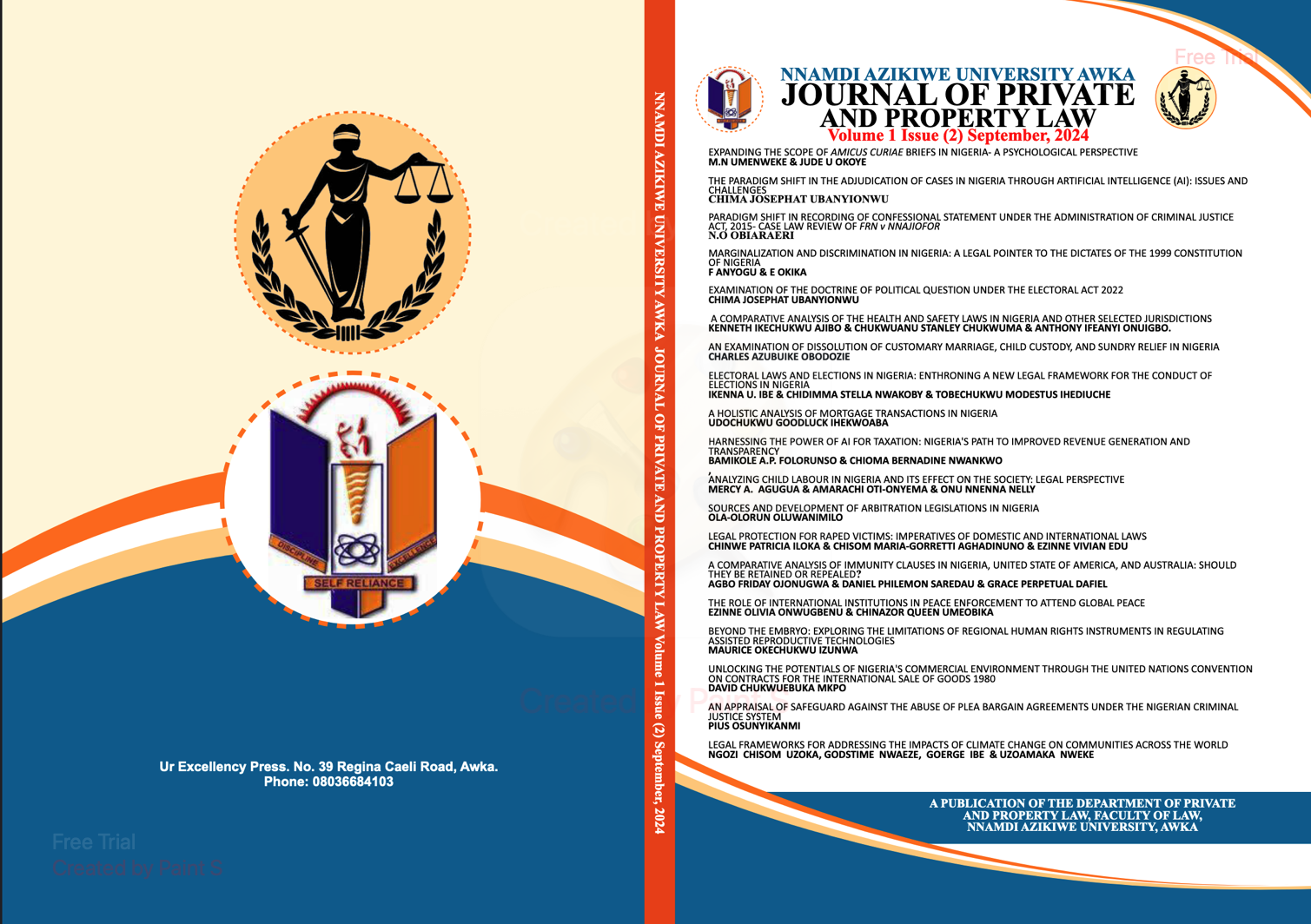PARADIGM SHIFT IN RECORDING OF CONFESSIONAL STATEMENT UNDER THE ADMINISTRATION OF CRIMINAL JUSTICE ACT, 2015- CASE LAW REVIEW OF FRN v NNAJIOFOR
Keywords:
Admissibility, Confession, Electronic Recording, Video, Voluntariness, LawyerAbstract
Before the landmark judgment of the Supreme Court delivered on Friday, the 1st day of March, 2024 in
FRN v Nnajiofor (Suit No: SC.353C/2019), the provisions of section 15(4) and 17(2) of the ACJA, 2015
that mandate law enforcement agencies obtaining confessional statements to record them electronically
and in the presence of the lawyer to the defendant were obeyed more in breach than observance. This
worked hardship on defendants while objections to the voluntariness of confessional statements created
undue delays in court proceedings leading to resort to trial-within-trial to determine voluntariness of
confessional statements. This paper deployed the doctrinal research method to analyse the facts and
arguments that led to the judgment of the Supreme Court in FRN v Nnajiofor that any confessional
statement obtained without video or electronic recording and in the presence of the lawyer to the
defendant or other named and authorised persons as enacted by the ACJA will be rejected and remain
inadmissible in a Court of law. Consequently, it was recommended that law enforcement agencies,
defence Counsel in criminal trials and the Courts should take note of this drastic but progressive change
in the law in order do the needful as it respectively applies to them because the days of obtaining
confessional statement in breach of the provisions of the law are over.

